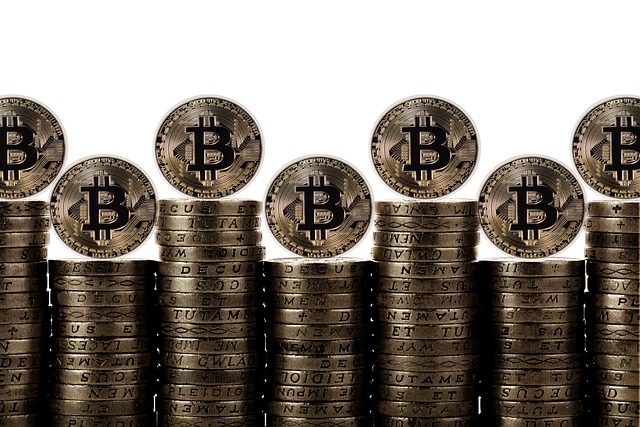Decentralized Finance Advantages for Investors: Insights and Strategies
Decentralized Finance Advantages for Investors: Insights and Strategies

Key Benefits of Decentralized Finance for Investors
Higher Potential Returns
One of the key benefits of decentralized finance (DeFi) for investors is the potential for higher returns compared to traditional financial systems. DeFi offers a wide range of investment opportunities, such as lending, borrowing, staking, and yield farming, that can generate significant returns. Unlike traditional banks and financial institutions, DeFi platforms are not bound by rigid regulations and can offer higher interest rates and rewards. Additionally, DeFi investments are not limited to a specific geographic location, allowing investors from around the world to participate and potentially earn larger profits.
Increased Accessibility
Another major advantage of decentralized finance is the increased accessibility it provides to investors. Traditional financial systems often exclude individuals with limited financial status or who reside in remote areas. However, DeFi platforms operate on the blockchain, which enables anyone with an internet connection to access and participate in financial activities. This inclusivity allows individuals from all backgrounds and economic conditions to seize investment opportunities and potentially enhance their financial well-being. Furthermore, decentralized finance eliminates barriers such as intermediaries and minimum investment amounts, making it easier for individuals with limited resources to enter the market and start investing.
1) Higher Potential Returns: Discover how decentralized finance can offer investors the opportunity to earn higher returns compared to traditional financial systems.
Decentralized finance has emerged as a game-changer for investors seeking higher potential returns compared to traditional financial systems. With the advent of blockchain technology, decentralized finance platforms offer a plethora of investment opportunities that can yield substantial profits. Unlike traditional systems that are governed by centralized authorities, decentralized finance operates on a peer-to-peer basis, eliminating the need for intermediaries. This not only reduces costs but also minimizes the barriers to entry, allowing investors of all backgrounds to participate in the market.
One of the key factors contributing to higher potential returns in decentralized finance is the ability to leverage the power of smart contracts. These self-executing contracts automatically enforce the terms and conditions of an agreement, eliminating the need for intermediaries and ensuring the execution of transactions without the risk of human error. This automation not only streamlines the investment process but also reduces costs and enhances efficiency. Moreover, the transparency of blockchain technology allows investors to track their investments in real-time, providing them with the confidence to make informed decisions and maximize their returns. By harnessing these advantages, investors can tap into the decentralized finance ecosystem to realize their financial goals with potentially higher returns compared to traditional financial systems.
2) Increased Accessibility: Explore how decentralized finance opens up investment opportunities to a wider range of individuals, regardless of their geographical location or financial status.
Decentralized finance has revolutionized the investment landscape by providing increased accessibility to a wider range of individuals, irrespective of their geographical location or financial status. Unlike traditional financial systems that often restrict investment opportunities to a privileged few, decentralized finance opens the doors to anyone with an internet connection and a desire to invest.
One of the primary ways decentralized finance achieves increased accessibility is through the use of blockchain technology. By leveraging blockchain, investors can participate in financial transactions and investment opportunities directly, bypassing the need for intermediaries such as banks or brokers. This eliminates the various barriers that traditionally hindered individuals from entering the investment space, such as hefty account minimums or strict eligibility criteria. Furthermore, decentralized finance operates 24/7, allowing investors from different time zones to participate at their convenience. This level of accessibility ensures that individuals from all backgrounds can explore and benefit from investment opportunities that were previously out of reach.
3) Enhanced Security: Understand the robust security measures that decentralized finance platforms employ to protect investors’ assets and transactions.
Decentralized finance platforms prioritize the security of investors’ assets and transactions, employing robust measures to ensure their protection. One of the key security features is the use of blockchain technology, which creates a transparent and tamper-proof record of all transactions. By utilizing cryptography, decentralized finance platforms safeguard sensitive financial information, making it extremely difficult for unauthorized parties to gain access.
Moreover, decentralized finance platforms implement smart contracts, which are self-executing agreements with predefined rules and conditions. These contracts eliminate the need for intermediaries and reduce the risk of fraud or manipulation, as transactions occur automatically once the agreed-upon conditions are met. Furthermore, decentralized finance platforms often employ multi-factor authentication and encryption techniques to secure investors’ accounts and ensure that only authorized individuals can access and manage their assets. These security measures not only protect investors’ funds but also contribute to building trust within the decentralized finance ecosystem.
4) Financial Inclusion: Learn how decentralized finance promotes financial inclusivity by providing access to financial services for the unbanked and underbanked populations.
Financial inclusion has long been a challenge for individuals who are unbanked or underbanked, often leaving them excluded from accessing basic financial services. However, decentralized finance (DeFi) is changing this narrative by providing a solution to this problem. DeFi leverages blockchain technology to create decentralized platforms that offer financial services without the need for intermediaries or traditional banking institutions. This peer-to-peer approach allows unbanked and underbanked populations to participate in the global financial ecosystem and access services such as loans, savings, and investments.
By eliminating the need for a centralized authority, decentralized finance ensures that financial services are accessible to anyone with an internet connection, regardless of their geographical location. This is especially valuable for individuals in underserved or remote areas who may have limited access to traditional banking. With DeFi, they can now have a digital wallet and access financial services on their smartphones, bridging the gap between the traditional financial system and the unbanked. This newfound financial inclusivity contributes to economic empowerment and creates opportunities for individuals to improve their financial well-being.
5) Transparency and Trust: Delve into the transparent nature of decentralized finance, which allows investors to verify and trust the integrity of transactions and investments.
Decentralized finance brings with it a unique advantage that is highly prized by investors: transparency and trust. Unlike traditional financial systems where transactions are often obscured and difficult to verify, decentralized finance operates on public and open blockchain networks. This means that every transaction and investment made through decentralized finance platforms can be easily accessed and examined by anyone with an internet connection.
The transparent nature of decentralized finance not only allows investors to view the history of a transaction or investment, but it also enables them to verify its integrity. This is particularly important in an age where trust is increasingly eroded by fraud and scams. With decentralized finance, investors can have confidence in the authenticity of their transactions and investments, knowing that they are built upon a secure and tamper-proof system. The ability to delve into the underlying details and establish trust is empowering for investors, who can now make informed decisions based on accurate and reliable information.
6) Diversification Options: Discover the various investment options available in decentralized finance, allowing investors to diversify their portfolio and manage risk effectively.
Decentralized finance offers a wide range of investment options, allowing investors to diversify their portfolio and effectively manage risk. One of the key advantages of decentralized finance is the ability to invest in various digital assets, including cryptocurrencies, tokens, and decentralized applications (DApps). These investment options provide investors with opportunities in emerging sectors such as decentralized lending, decentralized exchanges, and yield farming.
Cryptocurrencies, such as Bitcoin and Ethereum, are the most well-known investment options in decentralized finance. They provide investors with the potential for high returns and diversification in a rapidly evolving market. Additionally, investors can participate in Initial Coin Offerings (ICOs) or token sales, which grant them access to promising projects at early stages.
Furthermore, decentralized finance enables investors to engage in various yield-generating strategies.

Overall, the diversification options within decentralized finance empower investors to explore and invest in a multitude of digital assets and strategies.

• Investors can diversify their portfolio by investing in various digital assets such as cryptocurrencies, tokens, and decentralized applications (DApps).
• Cryptocurrencies like Bitcoin and Ethereum offer high potential returns and diversification opportunities in the rapidly evolving market of decentralized finance.
• Participating in Initial Coin Offerings (ICOs) or token sales allows investors to access promising projects at early stages.
• Yield-generating strategies such as liquidity provision, lending on decentralized platforms, and staking digital assets enable investors to earn passive income.
• By spreading investments across different sectors and opportunities within decentralized finance, investors can effectively manage risk and potentially maximize returns.
7) Elimination of Middlemen: Explore how decentralized finance removes intermediaries such as banks and brokers, reducing costs for investors and increasing efficiency.
Decentralized finance, or DeFi, presents a revolutionary concept that eliminates the need for intermediaries like banks and brokers in financial transactions. By cutting out these middlemen, DeFi platforms offer investors several key advantages. Firstly, the removal of intermediaries reduces costs for investors, as they no longer have to pay fees or commissions associated with traditional financial systems. This cost reduction can significantly increase an investor’s overall return on investment, allowing them to retain more of their profits.

In addition to cost reduction and increased efficiency, another benefit of eliminating middlemen through decentralized finance is the enhanced level of autonomy and control it offers investors. Traditional financial systems often require investors to rely on centralized authorities for managing their assets. However, DeFi platforms empower investors to take charge of their investments, giving them full control over their digital assets. With the help of smart contracts, investors can automate their investing strategies, execute trades, and manage their portfolios independently. This level of autonomy not only enables investors to tailor their investments to their specific preferences but also protects them from potential risks associated with centralized authorities. Through decentralized finance, investors can freely explore and engage in the financial markets without being bound by the restrictions or requirements imposed by intermediaries.
8) Autonomy and Control: Understand how decentralized finance empowers investors by giving them full control over their assets, without relying on centralized authorities.
Decentralized finance empowers investors by providing them with unparalleled autonomy and control over their assets. Unlike traditional financial systems that are governed by centralized authorities, decentralized finance allows investors to have full ownership and custody over their funds. This means that individuals can make investment decisions and execute transactions without the need for intermediaries such as banks or brokers.
With decentralized finance, investors don’t have to rely on third parties to hold or transfer their assets. Instead, they can utilize blockchain technology to directly manage their portfolios and securely store their digital assets in digital wallets. This level of control and self-governance enables investors to have complete visibility and authority over their financial activities, reducing the risk of unauthorized access or manipulation. Additionally, by eliminating the need for intermediaries, decentralized finance also streamlines processes, saving investors time and reducing transaction costs.
In summary, decentralized finance empowers investors by granting them autonomy and control over their assets, free from dependence on centralized authorities. This newfound independence allows individuals to have a more direct and transparent relationship with their financial resources, enhancing their overall investment experience.
9) Global Market Access: Learn how decentralized finance enables investors to access global
The emergence of decentralized finance (DeFi) has revolutionized the way investors access global markets. Unlike traditional financial systems that are limited by geographical boundaries, DeFi provides investors with a borderless and inclusive marketplace. This means that anyone with an internet connection can participate in global investment opportunities, regardless of their location or financial status.
One of the key advantages of DeFi is that it eliminates the need for intermediaries such as banks and brokers. By leveraging blockchain technology, investors can directly engage in peer-to-peer transactions, bypassing traditional financial institutions. This not only reduces costs for investors but also increases efficiency by streamlining the investment process. With decentralized finance, investors have the freedom to explore and capitalize on global markets, all from the comfort of their own homes.
What are the key benefits of decentralized finance for investors?
Decentralized finance offers higher potential returns, increased accessibility, enhanced security, financial inclusion, transparency and trust, diversification options, elimination of middlemen, autonomy and control, and global market access.
How does decentralized finance offer higher potential returns compared to traditional financial systems?
Decentralized finance platforms provide investors with the opportunity to earn higher returns due to the nature of their decentralized and innovative investment options.
How does decentralized finance increase accessibility for investors?
Decentralized finance opens up investment opportunities to a wider range of individuals, regardless of their geographical location or financial status, making it more inclusive and accessible for everyone.
How does decentralized finance ensure enhanced security for investors?
Decentralized finance platforms employ robust security measures to protect investors’ assets and transactions, ensuring a higher level of security compared to traditional financial systems.
How does decentralized finance promote financial inclusion?
Decentralized finance promotes financial inclusivity by providing access to financial services for the unbanked and underbanked populations, ensuring that everyone has equal opportunities to participate in the global economy.
Why is transparency and trust important in decentralized finance?
Decentralized finance operates in a transparent manner, allowing investors to verify and trust the integrity of transactions and investments, creating a more trustworthy and reliable financial system.
What are the diversification options available in decentralized finance?
Decentralized finance offers various investment options, allowing investors to diversify their portfolio and effectively manage risk by investing in different decentralized projects and assets.
How does decentralized finance eliminate middlemen?
Decentralized finance removes intermediaries such as banks and brokers, reducing costs for investors and increasing efficiency by allowing direct peer-to-peer transactions.
How does decentralized finance give investors autonomy and control?
Decentralized finance empowers investors by giving them full control over their assets, without relying on centralized authorities or intermediaries, allowing them to make independent financial decisions.
How does decentralized finance enable investors to access the global market?
Decentralized finance enables investors to access global markets, providing them with the opportunity to invest in assets and projects from around the world, further expanding their investment options.
Todays Featured Product:
Buy, exchange and grow your crypto securely with a Ledger hardware wallet, combined with the Ledger Live app. It’s never been easier to keep your crypto safe and accessible. Buy direct from Ledger.com and get todays Special Offers Here.




